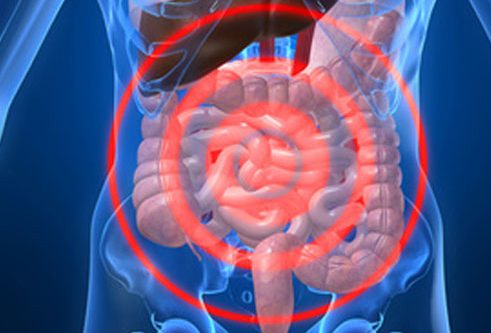
Crohn’s disease and ulcerative colitis, collectively referred to as Inflammatory bowel disease (IBD), are characterized by their prolonged inflammation of the gastrointestinal tract. IBD has been shown to lead to the development of colorectal tumors. In order to better understand the pathogenesis of IBD and the incidence of colorectal tumors, scientists at the Tokyo University of Science (TUS) have shown that innate immune receptors, particularly those expressed in the gut, such as C-type lectin receptors (CLRs), are responsible for the development of IBD.
While this finding provides an encouraging new therapy target for IBD and colorectal tumors, the researcher also note that CLRs play a vital role in the regulation of gut microbiota and defense against pathogens. As a result, a balance needs to be struck to maintain intestinal homeostasis. Study results were published August 2 in the journal Cell Reports.
Dendritic cell immunoreceptor (DCIR) is one such CLR that is responsible for maintaining homeostasis of the immune and skeletal systems. Previous studies have suggested that DCIR negatively regulates both innate and acquired immune responses. Blocking DCIR could, therefore, potentially boost immunity against colon tumor. However, its role in intestinal immunity has remained unclear.
For their research, the researchers fed the mice with drinking water containing dextran sodium sulfate (DSS), a synthetic sulfated polysaccharide, and azoxymethane (AOM), a neurotoxic chemical, to induce colon tumors similar to that observed in humans with IBD.
Surprsingly, the team found that the mice lacking DCIR showed reduced colitis severity and AOM-DSS–induced colorectal tumor growth. Moreover, compared to the wild-type mice (control), the DCIR-deficient mice showed lower body weight loss as well as reduced proinflammatory cell infiltration in the colon.
“Our findings point to the fact that intestinal carcinogenesis and inflammation are facilitated by DCIR signaling, which points to the possibility that blocking DCIR might prevent ulcerative colitis and colon cancer,” said study leaders Prof. Yoichiro Iwakura of TUS.
Corroborating this possibility, the study further revealed that the use of an antibody called “anti-NA2” against asialo-biantennary-N-glycans (NA2), a ligand (binding molecule) to DCIR, reduced DSS colitis symptoms and prevented colorectal tumor growth.
Speaking about the practical applications of their study, Prof. Iwakura said: “Our results suggest that therapeutics targeting DCIR and its ligands could be used to effectively treat autoimmune diseases, IBD, and cancer, which have been traditionally difficult to treat.”
The team noted that the study could open doors to novel therapeutic strategies for treating colorectal tumors, improving not only the lives of patients with IBD but also our understanding of the pathogenesis of human diseases.













